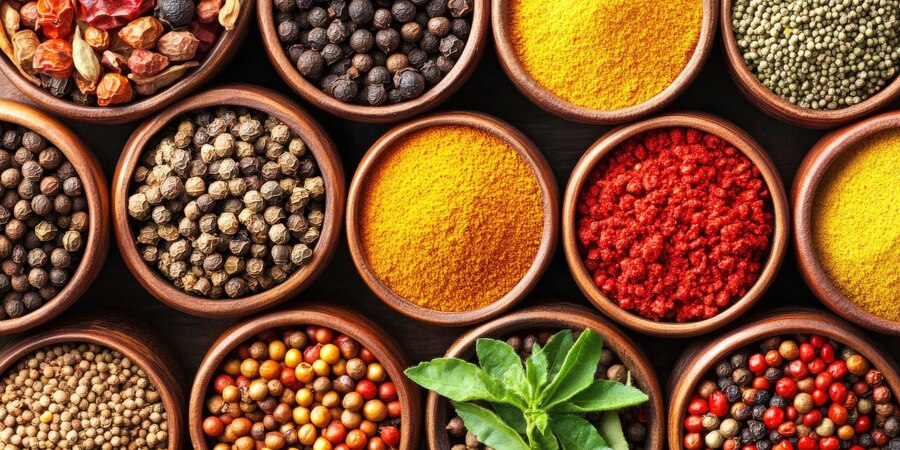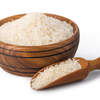From Turmeric to Cardamom: The Ultimate List of Must-Have Indian Spices for Every Kitchen

Indian cuisine is celebrated globally for its vibrant flavors and aromatic spices. The rich tapestry of Indian spices not only enhances the taste of dishes but also offers numerous health benefits. Whether you're a seasoned chef or a home cook looking to explore Indian culinary traditions, having the right spices in your pantry is crucial. This comprehensive guide will take you through the essential Indian spices that every kitchen should have, explaining their uses and benefits along the way. By the end of this article, you'll be well-equipped to embark on a flavorful journey through Indian cuisine.
1. Turmeric (Haldi)
Turmeric, often referred to as "haldi" in India, is a staple in Indian kitchens. Its vibrant yellow color and earthy flavor make it an indispensable ingredient in many dishes. Turmeric is known for its anti-inflammatory properties and is often used in curries, rice dishes, and soups. It is also a key component in many spice blends, such as garam masala.
Uses:
- Adds color and flavor to curries and stews.
- Used in rice dishes like biryani.
- Can be mixed with warm milk for its medicinal benefits.
Health Benefits:
- Contains curcumin, which has anti-inflammatory and antioxidant properties.
- May help improve digestion and boost the immune system.
2. Cumin (Jeera)
Cumin seeds, or "jeera," are another essential spice in Indian cooking. Their nutty and warm flavor adds depth to a variety of dishes. Cumin can be used both as whole seeds or ground powder, depending on the recipe.
Uses:
- Commonly used in tempering (tadka) to add flavor to dals and curries.
- Adds a distinctive flavor to spice blends like garam masala and curry powder.
- Can be used in soups and stews for added warmth.
Health Benefits:
- Known to aid in digestion and improve gut health.
- Contains antioxidants and may help in managing blood sugar levels.
3. Coriander (Dhania)
Coriander, or "dhania," is another versatile spice with a mild, citrusy flavor. Both the seeds and the fresh leaves (cilantro) are used in Indian cuisine. Coriander seeds are typically ground into a powder and used in a wide range of dishes.
Uses:
- Ground coriander powder is used in curries, soups, and stews.
- Coriander seeds can be used whole in tempering for added texture and flavor.
- Fresh cilantro leaves are used as a garnish for a burst of freshness.
Health Benefits:
- Contains antioxidants and can aid in digestion.
- May help in reducing cholesterol and improving heart health.
4. Cardamom (Elaichi)
Cardamom, or "elaichi," is known for its sweet and aromatic flavor. It is often used in both savory and sweet dishes, including biryanis, curries, and desserts. Cardamom pods can be used whole or ground, depending on the recipe.
Uses:
- Adds a sweet and aromatic flavor to curries, rice dishes, and teas.
- Used in Indian sweets like kheer and gulab jamun.
- Can be added to spice blends for a unique flavor profile.
Health Benefits:
- Known for its digestive properties and may help in relieving indigestion.
- Contains antioxidants and can help freshen breath.
5. Mustard Seeds (Sarson)
Mustard seeds, or "sarson," are commonly used in Indian cuisine for their pungent flavor and ability to add a spicy kick to dishes. They are often used in tempering (tadka) and are a key ingredient in pickles.
Uses:
- Used in tempering for dals and curries.
- Adds a sharp and tangy flavor to Indian pickles.
- Can be used to make mustard oil for cooking.
Health Benefits:
- Rich in antioxidants and may have anti-inflammatory properties.
- Can aid in digestion and improve metabolism.
6. Fennel Seeds (Saunf)
Fennel seeds, or "saunf," have a sweet and licorice-like flavor. They are used in a variety of dishes, including curries and spice blends, and are also chewed after meals as a digestive aid.
Uses:
- Adds a sweet and aromatic flavor to curries and spice blends.
- Can be used in pickles and marinades.
- Chewed after meals for digestive benefits.
Health Benefits:
- Known to aid in digestion and freshen breath.
- Contains antioxidants and may help reduce inflammation.
7. Red Chili Powder (Lal Mirch)
Red chili powder, or "lal mirch," is essential for adding heat to Indian dishes. It comes in various heat levels, so you can adjust the spiciness of your dishes according to your preference.
Uses:
- Adds heat and color to curries, soups, and stews.
- Used in spice blends like garam masala and curry powder.
- Can be sprinkled on vegetables and snacks for extra spice.
Health Benefits:
- Contains capsaicin, which has metabolism-boosting properties.
- May help improve circulation and relieve pain.
8. Cloves (Laung)
Cloves, or "laung," have a strong and aromatic flavor that can be quite intense. They are used sparingly in Indian cooking but are essential in many spice blends and rice dishes.
Uses:
- Adds a warm and spicy flavor to rice dishes, curries, and stews.
- Used in spice blends like garam masala and biryani.
- Can be used in teas and mulled drinks.
Health Benefits:
- Contains eugenol, which has anti-inflammatory and analgesic properties.
- May aid in digestion and oral health.
9. Cinnamon (Dalchini)
Cinnamon, or "dalchini," is known for its sweet and warm flavor. It is used in both sweet and savory dishes and is a key ingredient in spice blends like garam masala.
Uses:
- Adds a sweet and aromatic flavor to curries, rice dishes, and desserts.
- Used in spice blends and teas.
- Can be added to baked goods for extra warmth.
Health Benefits:
- Contains antioxidants and may help regulate blood sugar levels.
- Known for its anti-inflammatory and antimicrobial properties.
10. Nutmeg (Jaiphal)
Nutmeg, or "jaiphal," has a warm and slightly sweet flavor. It is used in both sweet and savory dishes and is often grated fresh for the best flavor.
Uses:
- Adds warmth and sweetness to curries, rice dishes, and desserts.
- Used in spice blends and baked goods.
- Can be grated fresh into beverages like eggnog and chai tea.
Health Benefits:
- Contains antioxidants and may have anti-inflammatory properties.
- Can aid in digestion and improve sleep quality.
Conclusion
Indian spices are the heart and soul of Indian cuisine, transforming ordinary ingredients into extraordinary dishes with their rich flavors and aromas. From the earthy warmth of turmeric to the sweet and aromatic notes of cardamom, each spice brings its unique character to the table. Whether you're preparing a traditional curry, a fragrant biryani, or a simple dal, having these essential spices on hand will elevate your cooking and bring authentic Indian flavors to your kitchen.
To explore and purchase these must-have Indian spices, masalas, and herbs, visit buniyaa.com, where you can find a wide selection of high-quality Indian spices delivered straight to your doorstep in the USA. Happy cooking!




